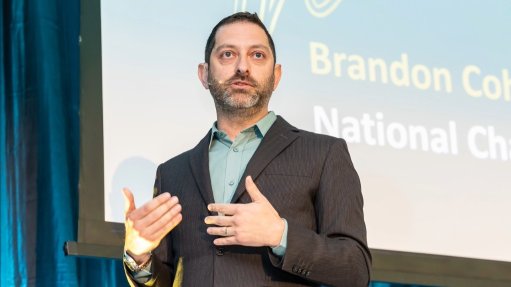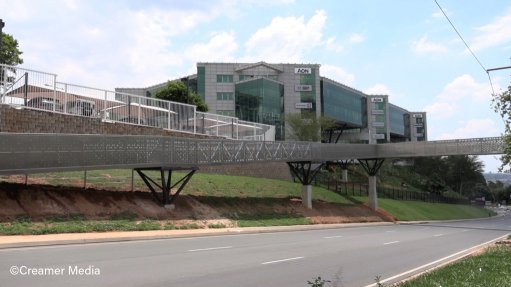IRP 2023 could reset South Africa’s social and economic woes if implemented correctly
By ACTOM Business Development Executive Mamiki Matlawa
The Draft Integrated Resource Plan (IRP) 2023 has faced criticism from some quarters for having gaps in its roadmap to shaping a sustainable energy future, but it also has several strengths and can potentially unlock various benefits for the country and specifically the manufacturing sector.
Electromechanical equipment manufacturer ACTOM recently held a webinar, facilitated by Professor Pat Naidoo, during which ACTOM group CEO Mervyn Naidoo, Manufacturing Circle executive director Phillipa Rodseth and the South African Renewable Energy Masterplan facilitator, senior economist, Gaylor Montmasson-Clair discussed the Draft IRP 2023’s impact on the manufacturing sector.
Released in January this year, South Africa’s Draft IRP 2023 is a key document that outlines a comprehensive strategy for addressing the country’s energy security challenges, while also setting out its transition to a diversified energy mix, including renewables.
The plan comes at a time when South Africa is facing significant social and energy challenges, with an unemployment rate close to 33%, and continuous loadshedding which is having a catastrophic impact on the economy. This poses the risk of affecting the quality of the products produced by manufacturers and impacts on their ability to produce the required volumes.
Additionally, the delays in investment in previous renewable energy projects have resulted in a general decline in the manufacturing sector, with many large companies being forced to close some of their plants. Manufacturers require predictable demand to be able to load and sustain their factories or they will face risks that could threaten their businesses. These delays have also resulted in major lost opportunities for capacity increase in the sector, with many companies being forced to hold back on capital expenditure programmes and expansion.
Low Manufacturing Activity
The loss of jobs and the retention of scarce skills has been felt by the manufacturing sector, owing to the low levels of activity in manufacturing over the past ten years, with many companies having to scale down and even close because of a lack of loading.
The IRP 2023 talks to significantly modest projections for renewable energy projects coming onstream and introduces gas-to-power to the energy mix, with coal remaining a significant energy source alongside hydropower, batter energy storage and hydrogen projects. However, the plan has the potential to create investment opportunities, foster local skills development, generate job opportunities and establish valuable partnerships within the manufacturing sector.
Considering that there has been a stop-start approach to the government’s Renewable Energy Independent Power Producer Procurement Programme (REIPPPP) in the past, certain key factors must be considered with the implementation of the IRP 2023.
Firstly, there must be discipline and decisiveness in the implementation of the programme that has been previously delayed by a lack of execution. This needs to change going forward.
Secondly, the scale of the investment that will be required must aggressively be targeted towards enhancing localisation and the reindustrialisation of South Africa. Simultaneously, a strategic medium- to long-term procurement framework will be required where manufacturers look at things from an “SA Inc” perspective.
Strategic Procurement Models
Going forward, it will be critical for the manufacturing sector to use the demand it does have and leverage it to move towards strategic procurement models to increase the saturation of the capacity in local factories. This is not only needed for the sake of the country but also to make business cases bankable for investment to grow manufacturing.
Similarly, South Africa’s Integrated Development Plan (IDP) and Transmission Development Plan (TDP) have major potential to turn around the country’s dearth of jobs and its economic woes. The TDP has identified the need to build over 14 000 km of transmission line and associated substations, as well as the need to build renewable energy projects. This has the potential to turn the tide for the manufacturing sector.
However, South Africa must ensure that the country learns from past mistakes, specifically from the Transnet 1064 locomotive programme, which resulted in a lack of investment in local manufacturing and the acquisition of about half the locomotives not being localised. This means that we not only lost the opportunity to build capacity for local manufacturing but also lost the aftermarket support for that locomotive fleet and this has manifested in the logistics challenges that we see in South Africa today.
This is relevant for the implementation of the IRP 2023 because South Africa needs to ensure that it does not end up with mass imports to the detriment of the local manufacturing sector and the country’s ability to support the aftermarket repairs and services of these products.
Ultimately, continuous engagement between industry and key stakeholders is needed for the benefit of the country. An SA Inc perspective must be adopted and applied to the implementation of the IRP 2023, the IDP and the TDP. The country is effectively looking at energy transmission and generation demand that could map out a sustainable manufacturing industry for the next ten to 30 years. South Africa must get this right.
Editorial Submission
Mamiki Matlawa
ACTOM (Pty) Ltd
Business Development Executive
010 136 0216
Khanya Nobangule
Evolution PR
071 759 4257
[TH1]Correct or should I attribute information in the text to Mamiki Matlawa?
Article Enquiry
Email Article
Save Article
Feedback
To advertise email advertising@creamermedia.co.za or click here
Comments
Press Office
Announcements
What's On
Subscribe to improve your user experience...
Option 1 (equivalent of R125 a month):
Receive a weekly copy of Creamer Media's Engineering News & Mining Weekly magazine
(print copy for those in South Africa and e-magazine for those outside of South Africa)
Receive daily email newsletters
Access to full search results
Access archive of magazine back copies
Access to Projects in Progress
Access to ONE Research Report of your choice in PDF format
Option 2 (equivalent of R375 a month):
All benefits from Option 1
PLUS
Access to Creamer Media's Research Channel Africa for ALL Research Reports, in PDF format, on various industrial and mining sectors
including Electricity; Water; Energy Transition; Hydrogen; Roads, Rail and Ports; Coal; Gold; Platinum; Battery Metals; etc.
Already a subscriber?
Forgotten your password?
Receive weekly copy of Creamer Media's Engineering News & Mining Weekly magazine (print copy for those in South Africa and e-magazine for those outside of South Africa)
➕
Recieve daily email newsletters
➕
Access to full search results
➕
Access archive of magazine back copies
➕
Access to Projects in Progress
➕
Access to ONE Research Report of your choice in PDF format
RESEARCH CHANNEL AFRICA
R4500 (equivalent of R375 a month)
SUBSCRIBEAll benefits from Option 1
➕
Access to Creamer Media's Research Channel Africa for ALL Research Reports on various industrial and mining sectors, in PDF format, including on:
Electricity
➕
Water
➕
Energy Transition
➕
Hydrogen
➕
Roads, Rail and Ports
➕
Coal
➕
Gold
➕
Platinum
➕
Battery Metals
➕
etc.
Receive all benefits from Option 1 or Option 2 delivered to numerous people at your company
➕
Multiple User names and Passwords for simultaneous log-ins
➕
Intranet integration access to all in your organisation

















